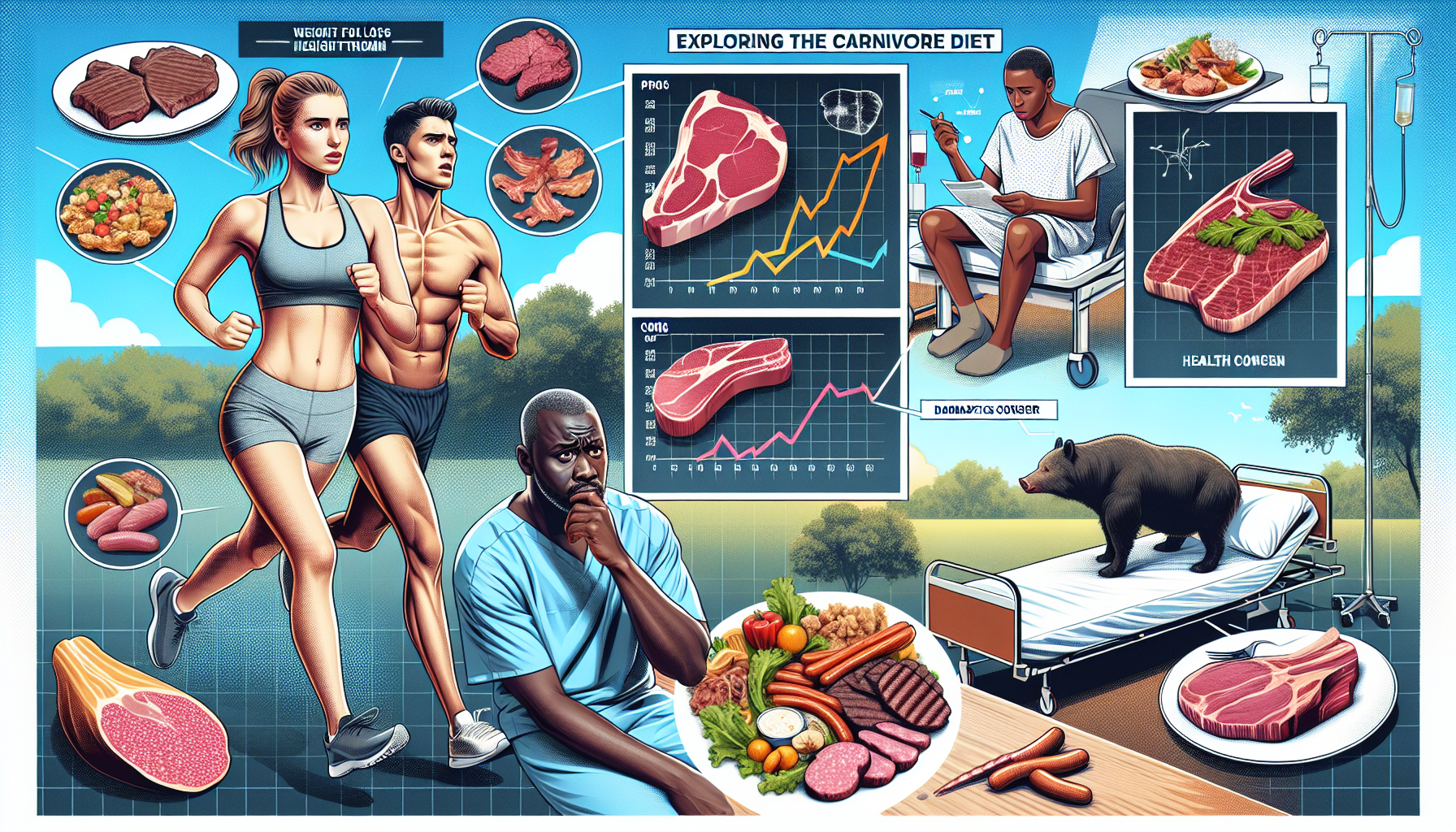The Carnivore Diet: A Weight Loss Journey or a Health Hazard?
Have you ever imagined losing weight drastically without lifting a single weight or running a mile? Today, let's dive into an incredible story of a woman who lost nearly 30kg purely through diet changes and discuss the broader implications of such extreme diet choices.
1. An Unconventional Approach to Weight Loss
Imagine walking into your kitchen, seeing a refrigerator stocked only with meat, and knowing that's your only food source. Angelina Marie, a mother from Mississippi, embarked on this very journey called the "carnivore diet," which restricts the intake to only animal products, including meat and animal-derived foods like eggs and dairy, but excluding all plant-based products. By removing all carbohydrates and processed foods from her diet, Angelina noticed a remarkable transformation. In just one week, she lost 5kg and, over six months, she shed a total of 28kg, crediting this dramatic change to her strict adherence to a meat-only diet.
Angelina's story raises an interesting question: Can simply changing what we eat, without exercise, significantly impact our weight and health?
2. The Science Behind the Carnivore Diet
The carnivore diet is based on consuming high amounts of protein and fat while eliminating carbohydrates entirely. But why might this work for weight loss? When you consume fewer carbs, your body is forced into a state called ketosis, where it burns fat for fuel instead of glucose, potentially accelerating weight loss. Some proponents of this diet claim that it not only helps in losing weight, but also improves bodily efficiency and mental clarity.
However, any diet drastically different from the typical food pyramid raises questions about its sustainability and safety.
3. Potential Benefits and Risks
Angelina reported not only weight loss but also improvement in her overall well-being, like reduced bloating and better skin health. Such anecdotes often bring attention to unconventional diets. Supporters of the carnivore diet claim improved physical and mental capabilities, but what's the other side of the coin?
• Health Concerns: According to research, the long-term implications of a diet rich in red meat could be concerning. Studies from Harvard and Oxford suggest that excessive consumption of red meat could increase the risk of diabetes by 62% and heart disease by 18% per extra 50g of red meat consumed daily. These statistics are alarming, considering that the diet eliminates many nutrient sources found in fruits, vegetables, and grains.
• Nutritional Deficiency: Critics argue that essential nutrients like vitamin C and fiber, crucial for health, are missing from a meat-only diet. These deficiencies could lead to serious health issues like scurvy or increased cancer risk.
4. Anecdotal Success Stories
Despite the risks, many people on platforms like TikTok are broadcasting their successes with the carnivore diet. Videos showcasing weight loss and enhanced mental clarity add to the diet's intrigue. Some followers believe that this diet could indeed be a life-changer, but is it really the success story it seems?
While stories like Angelina's inspire many, experts advise approaching such reports with caution. Individual success does not equal universal success. Just because a diet worked for one person doesn't mean it's safe or effective for everyone.
5. The Experts' Viewpoint
Experts remain divided about the carnivore diet's benefits. While some acknowledge that reducing processed food and sugar can improve health, they strongly recommend a balanced diet. Medical professionals stress diversity in food intake, highlighting the importance of fruits, vegetables, and whole grains in conjunction with lean proteins.
Dr. Lee, a nutritionist, states, “While reducing carbs can help in weight loss, it shouldn’t come at the expense of important nutrients. A balanced approach ensures sustainable health benefits and reduces disease risks.”
6. A Balanced Diet as the Key
If weight loss and health are your goals, the consensus among experts is to strive for balance. A diet rich in lean meats, dairy, and eggs complemented with plant-based foods offers a variety of nutrients. This variety ensures that the body gets all the vital minerals and vitamins, supporting long-term health.
• Variety is Vital: Incorporating vegetables and whole grains can provide fiber and vitamins crucial for health.
• Lean Proteins: Fish, poultry, and plant-based proteins offer health benefits without the risks red meats may pose.
7. Conclusion: A Personal Choice
So, should you try the carnivore diet? It depends on your personal health goals and circumstances. Consulting with healthcare professionals can provide guidance tailored to individual needs, ensuring a choice that supports health and wellness goals.
Angelina's story throws a spotlight on the extraordinary outcomes some can achieve through dedication and commitment to a specific diet. However, it's crucial to weigh these outcomes against potential risks, aiming for a nutritional balance that offers sustainable health benefits.
In the end, the key lies in crafting a diet that accommodates both ambitions and health requirements. The question remains: Would you consider adopting an extreme diet, or is balance the path you prefer to follow?
Feel free to share your thoughts and experiences in the comments below!

